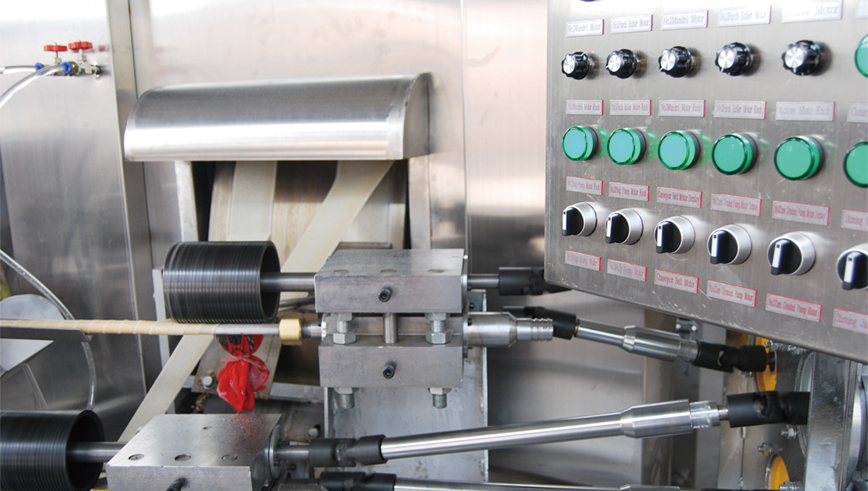With advancements in technology and increasing consumer demands for food quality, food machinery has become crucial in food processing. Not only does food machinery improve production efficiency, but it also ensures food safety and hygiene, making it an indispensable part of the modern food industry.
Improving Production Efficiency and Reducing Costs
In the food processing industry, manual operations often suffer from inefficiency and high costs. The advent of food machinery has significantly changed this scenario. Automated equipment can greatly enhance the speed of production lines while reducing human intervention. For example, in large-scale production of bread, biscuits, and pastries, automated equipment can handle the entire process from raw material processing to final packaging in a short amount of time. By reducing the need for manual labor, companies can substantially lower production costs while ensuring consistency in the specifications and quality of each batch of products.
Ensuring Food Hygiene and Safety
Food safety is one of the top concerns for consumers. Traditional manual operations are vulnerable to external contamination, but modern food machinery, with features like stainless steel construction and automatic cleaning systems, minimizes the risk of contamination during the processing stages. This is especially crucial for high-risk foods like meat and dairy products. The use of food machinery not only raises hygiene standards in production but also enables automated detection systems to promptly identify defective products, ensuring food safety.
Meeting Diverse Market Demands
Today's consumers have increasingly diverse preferences, with a growing demand for personalized and healthy food options. Food machinery, through flexible settings and multifunctional modules, can quickly respond to market changes. For example, a single food machine can be configured to produce pastries of different flavors or cookies of various shapes, helping companies rapidly capture market share. Additionally, with the rising trend of healthy eating, many food machines now have the ability to produce low-fat and low-sugar options, providing consumers with healthier choices.

Future Trends in the Development of Food Machinery
The food machinery industry will continue to evolve, particularly in the areas of automation, intelligence, and environmental sustainability. These trends will have a profound impact on the food processing industry, enhancing both the efficiency and quality of the entire sector.
Advancing Automation and Intelligence
With the advent of Industry 4.0, food machinery is moving toward higher levels of automation and intelligence. Intelligent food machinery not only performs complex operations but can also enable remote monitoring and control through IoT (Internet of Things) technology. For example, production equipment can collect data through sensors, adjusting production parameters in real time to ensure optimal efficiency and food quality. In the future, food machinery will become even more intelligent, potentially using AI algorithms to automatically optimize production processes, further reducing human intervention and increasing the flexibility of production lines.
The Trend Toward Environmental Sustainability
In response to the global call for sustainable development, the food machinery industry is actively exploring more environmentally friendly production methods. Many food machinery manufacturers are now using energy-efficient materials and eco-friendly designs to reduce energy consumption and waste generation. Some equipment even has features that enable recycling and reuse, minimizing the environmental impact of food processing. In the future, environmental sustainability will become a key direction for the development of food machinery, driving the entire industry toward a more sustainable future.
Integration with New Technologies
In addition to automation and intelligence, food machinery will increasingly integrate with new technologies. For example, the application of 3D printing technology can enable customized food production, offering consumers more diverse choices. The introduction of robotics will further enhance the precision and efficiency of food processing. As new technologies continue to emerge, they will open up more possibilities for the food machinery industry and lead to revolutionary changes in food production methods.






























